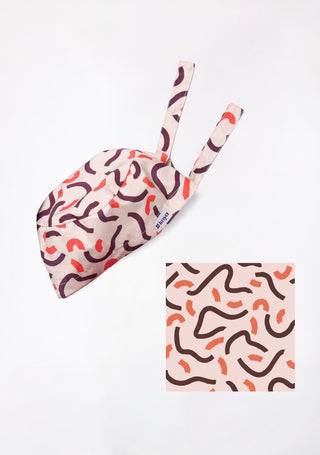In today's digital era, we have access to an overwhelming amount of information at our fingertips. While this can be empowering, it also poses a significant risk—the rapid spread of medical misinformation. Misinformation can fuel fear, promote ineffective treatments, and lead to severe health consequences. Social media platforms, blogs, and even some news outlets often circulate misleading health claims that are not backed by scientific evidence.
So how do we differentiate between factual medical advice and misleading information? Understanding the signs of false claims and knowing where to find reliable health information is crucial in protecting ourselves and others from misinformation. Let’s dive deep into what medical misinformation is, common healthcare myths, and how to spot false claims effectively.
Click here to Explore All Women's Scrubs and discover our complete collection of comfortable and stylish medical apparel
What is Medical Misinformation?
Medical misinformation refers to false, misleading, or inaccurate health-related information that spreads through various media channels. It can be intentional (disinformation) or unintentional (misinformation). The dangers of medical misinformation include delayed treatments, increased vaccine hesitancy, and the use of ineffective remedies.
Types of Medical Misinformation:
- False Claims – Exaggerated or entirely fabricated health claims, like a “miracle” cure for chronic diseases.
- Cherry-Picking Data – Selectively presenting information to support a particular view while ignoring contradicting evidence.
- Anecdotal Evidence – Using personal stories as proof instead of scientific data.
- Conspiracy Theories – Unfounded beliefs that claim hidden agendas in the medical field.
- Misinterpretation of Studies – Taking scientific studies out of context to mislead the public.
Common Healthcare Myths and Misconceptions
Misinformation thrives on widely believed myths. Here are some of the most common false claims in healthcare:
1. COVID-19 Vaccines Cause Infertility
Reality: There is no scientific evidence linking COVID-19 vaccines to infertility. Leading health organizations, including the CDC and WHO, have confirmed their safety.
2. Natural Remedies Can Cure All Diseases
Reality: While natural remedies may support overall health, they cannot replace evidence-based medical treatments for serious conditions.
3. You Can 'Boost' Your Immune System Instantly
Reality: The immune system is complex and cannot be strengthened overnight by a single food or supplement.
4. Microwaving Food Destroys Nutrients
Reality: Microwaving preserves nutrients better than some other cooking methods, such as boiling.
5. Drinking More Water Will Detox Your Body
Reality: Your kidneys and liver naturally detoxify your body; drinking excessive water won’t enhance this process.
6. Antibiotics Cure Viral Infections
Reality: Antibiotics only work against bacterial infections. They are ineffective against viruses like the flu or common cold.
7. 5G Networks Cause COVID-19
Reality: COVID-19 is caused by a virus, not radiation from 5G networks. There is no scientific basis for this claim.
8. All Mental Health Issues Can Be Solved by Positive Thinking
Reality: While a positive mindset is beneficial, mental health disorders often require medical intervention and therapy.
9. Cancer Has a Single Cure That is Being Suppressed
Reality: Cancer is a complex set of diseases, and no single cure exists. Ongoing research aims to develop more effective treatments.
10. Children Do Not Need Vaccines Anymore
Reality: Vaccines protect against life-threatening diseases. Stopping vaccinations can lead to the resurgence of dangerous illnesses like measles and polio.
Ready to explore our amazing scrubs collection? Browse the best here
How to Spot Medical Misinformation?
Given the prevalence of false health claims, knowing how to assess information critically is essential. Here are key ways to identify medical misinformation:
1. Check the Source
Ensure the information comes from reputable sources like the CDC, WHO, NIH, or accredited medical institutions.
2. Look for Scientific Backing
Legitimate health claims should be supported by peer-reviewed research, not just personal anecdotes.
3. Beware of Sensational Language
If a claim sounds too good (or too terrifying) to be true, it likely is.
4. Consult Healthcare Professionals
When in doubt, ask a qualified medical expert rather than relying on internet rumors.
5. Use Fact-Checking Websites
Platforms like Snopes, FactCheck.org, and HealthNewsReview.org can help verify medical claims.
6. Evaluate the Date
Medical research evolves. Check if the information is current and based on the latest scientific findings.
7. Recognize Bias
Some sources push specific agendas. Cross-check information with multiple unbiased references.
8. Question the Evidence
Are there multiple studies confirming the claim, or is it based on a single, unverified study?
Conclusion: The Power of Awareness in Fighting Medical Misinformation
Medical misinformation is a persistent threat in the digital age. False health claims can lead to confusion, poor health choices, and even life-threatening consequences. By learning to critically assess medical information, verifying sources, and consulting professionals, we can protect ourselves and others from harmful misinformation.
As responsible digital citizens, it is our duty to share accurate, science-backed health information and debunk myths whenever possible. By doing so, we contribute to a healthier, well-informed society.













